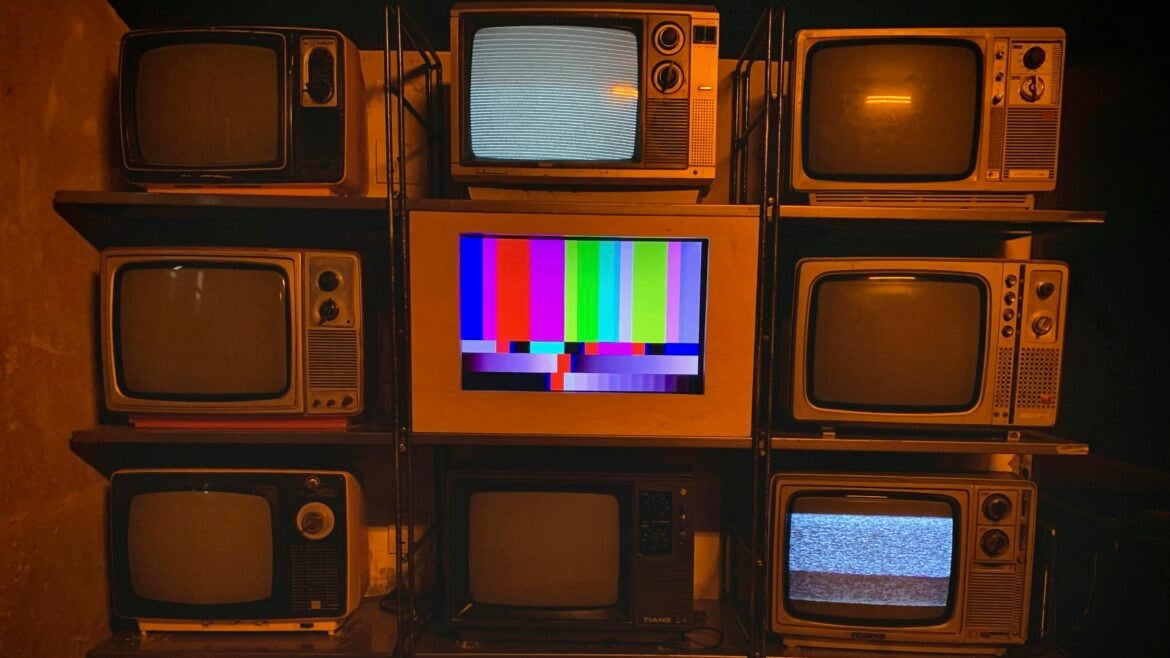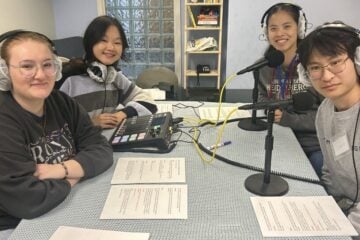What to do about the looming end of U.S. public broadcasting

Marshal Yung / Pexels
This commentary was first published on the author’s Substack and is republished here with permission.
Last May, in another world, I wrote about how I thought NPR should forego public funding for news and substantially revise its own governance to better reflect modern realities. I still think that would have been wise. I would advocate the same steps today, as part of a strategic retreat in anticipation of the Trump-Musk onslaught against public broadcasting in the U.S. That onslaught may have kicked off with a hearing yesterday chaired by the unhinged Rep. Marjorie Taylor Greene.
But folks responsible for public broadcasting in this country, both nationally and locally, haven’t been receptive to my advice, not publicly or privately. So this week, I want to talk about how the rest of us should react when this next, seemingly inevitable, step in Trump’s war on the press unfolds.
What to expect
First, don’t expect that on this matter the courts will ultimately save us. There may be a court fight on whether Trump and Musk can cut off funding without congressional action, but when it comes to public broadcasting — unlike Medicaid or perhaps the Postal Service, but like foreign aid — they will very likely, sometime this year, have the votes they need to smash the current arrangement.
That will occur, I think, in significant part because the current regime does not have the political will to materially cut federal spending and thus feels compelled to cut immaterial spending (federal aid to public broadcasting costs Americans about $1.50 per person) in a performative manner that, they hope, fools their base.
Arguments about saving the nation’s emergency broadcast system that piggybacks on public broadcasting, or about children’s programming or classical music, that prevailed over past attempts will fall before Trump’s thuggish congressional tactics (crucially backed by Musk’s use of his billions in federal subsidies now redirected to campaign funds).
I’m not sure whether Trump will want to try to force public stations off the air altogether or just eliminate their national news programming. In communities that can’t afford to mount substantial operations of their own, the distinction will hardly matter. In larger, richer (bluer) cities, some parts of local efforts will likely be salvaged, but the alternatives there are also more robust, so the societal costs relatively lower, even if still wounding.
Next, let’s focus on what’s critical to save. Not Downton Abbey or Sesame Street (which backed away from PBS a few years ago) or even Ken Burns, national treasure that he is. That programming will find a place in our enormously varied ecosystem of entertainment and will be appropriately responsive to audience interests and demand. And if classical music is relegated to Spotify and its competitors, well, people will still be able to find it there.
What is most at risk
What we might most seriously lose can be best illustrated, at the national level, by Morning Edition and All Things Considered, the NPR morning and afternoon shows, and PBS’ Frontline, the most important (often the only) serious investigative reporting on linear television. Additional significant losses at both the national and local levels are almost certain.
I hope (and actually expect) that national philanthropy and advertising (no longer needing to masquerade as “underwriting” or “sponsorship”) will be sufficient to keep the flagship radio programs on the air in the nation’s major cities, to enable Frontline to find a home on basic cable or streaming (the broadcast networks being too greedy and too cowardly), and to keep all of them on the internet. I hope also that NPR News, unshackled from Congress and even if diminished in size, will recover some of the voice it lost eight years ago and will resume in earnest the enterprise reporting for which it was known before 2017.
But there will be blood. I am not nearly as sanguine (sorry, couldn’t resist) about PBS News Hour, which waited too long to evolve into a modern broadcast. Most seriously, I expect, as indicated above, that stations in smaller communities may wither or die, adding yet another set of holes in the national fabric of local journalism. If you live in one of these towns and that makes you unhappy, please do take it out on your member of Congress.
What we should learn
More broadly, I think there are a number of lessons here that extend beyond the narrow questions of domestic public broadcasting:
- First, as I have said before, Trump is coming for the press in this country as a whole. There was no collective action when he started with the AP’s Stylebook and coverage of the White House, none when he silenced America’s international broadcasting channels a couple of weeks ago, perhaps on the way to turning them into American Izvestia. Public broadcasting is likely next, but you should have no doubt that the eventual target is the core political and policy coverage of mainstream news outlets, with the possible exception of those in hands he considers friendly.
- Next, and also not a new point, the incipient demise of public broadcasting, even after 58 years of support, should be a reminder that economic dependence on the government is antithetical to the very idea of a free press. What Congress gives, it can take away. What Congress, as currently funded and organized, cannot corrupt, they are ultimately inclined, if they can, to destroy. Waiting and hoping is not an effective counter-strategy.
What to do
What can we do? I still believe it is not too late to undertake collective action, beginning in coverage of the White House itself. It might not even be too late to take public media news off the public dole as a way to save the public broadcasting infrastructure, although time is very short.
Philanthropy, both large gifts and small, also has a significant role to play here. This is the time to support those who are displaying independence; soon it may well be the moment to fill gaps Trump and Musk create. This is an arena in which large numbers of small donations, both nationally and locally, can make a real difference. Advertisers who see it as in their interest to maintain an independent press — who do not think their marketing messages could be effectively conveyed by American Pravda — should also find ways to put their money where their long-term interest lies.
Even loyal readership, listenership and viewership of independent news, especially when combined with sharing what you learn with family and friends, can be an act of patriotic dissent.
Do what you can. Engage with others who are like-minded. Have the courage to openly support those who are helping and to oppose those doing damage. Do it now.
Dick Tofel was the founding general manager and first employee of ProPublica, and its president from 2013 until 2021. He is now principal of Gallatin Advisory LLC and author of the. newsletter Second Rough Draft.






Thank you for this reminder, Mr. Tofel. I retired from New Mexico PBS last year. My job was community engagement and education. The threat of defunding came every year during my almost 15 year career and it was magically overcome every year. That said, I always believed that public media would be sustained the public finds us relevant. During the pandemic NMPBS received support from more viewers than ever. That was a clear message to all of us.
I love my PBS! PBS is the only channel to watch incredible series such as Masterpiece Theater with no ads! However, it was so, so obvious during the campaigns in 2024 that PBS wanted only one party to win and it was not the Republican Party. From their news to their choice of programs such as Frontline, it was nothing except “Kamala good/ Trump bad”. I will never understand why PBS ever needed to be political at all with so much else to give. I believe PBS should be the avenue to get away from the outside world and not bring all this garbage in. Also, yearly PBS holds at least a month plus of requests for donations which I’ve been led to believe is to bring us all these awesome programs. PBS acts as if it has no money and it’s only these donations that keep them operating which I’ve never understood. PBS will get a new program and then repeat it over and over and over again.
As for the NPR news online – I can’t tolerate their leftist bias so I never read their news. Getting rid of this news would probably help the division in America.
I’d like to keep PBS going with enough funding to bring the best programs to the public but with a WARNING – keep your opinions to yourself! PBS was created for all people to educate and for entertainment – definitely not to tell people who to vote for!
Until you cite specific PBS-distributed or NPR-produced programs and reports where you can identify a mistatement or omission of a fact, editing that distorts an interviewee’s point of view, or manipulation of images or ambient sounds designed to mislead the viewer or listener, your claim of bias has zero merit. It’s just uninformed jibbering from a partisan keyboard warrior.
Please be specific as to program or report and date it aired. The fact that a single report or discussion segment doesnt jibe with YOUR VIEWPOINT doesn’t count.
I’ll be here waiting for your response.
I think we all gravitate to news sources that match our outlooks, but I also think it’s important to know exactly where your sources fall on the political scale. I encourage you to look at ad fontes media’s interactive graphic showing where most popular news outlets fall on the political and reliability scale. You can search for particular news outlets and see where they fall. If you compare, for example NPR (website) and Fox News (website), you’ll see that, yes, NPR leans a little left, but it’s high in reliability and very close to the center. Fox News is both more biased and less reliable, about where Talking Points Memo is on the left. It’s hard to know where the center is from our own experience, because our views are partly shaped by what we take in. If I got all my news from Rachel Maddow, NPR would look like Newsmax to me.
I agree. You are spot on!
As Mr. Tofel suggests, CPB will soon be gone which will mean public radio and TV stations will lose revenue, a different percentage for each station but probably between 5 and as much as 20%. Tofel suggests that philanthropy is part of the answer and I agree. But let’s be specific about that: a significant part of my 50+ years in public radio have been spent producing pledge drives, over 125 at last count, and one stat has always remained constant: the percentage may vary a little from station to station but, in general, only 1 out of every 10 listeners “takes the plunge and makes the pledge” as I’ve urged listeners to do thousands of times. If a station has a budget of, let’s say, $1 million and $100,000 is from CPB and if $500,000 of that $1 million comes from listeners, if the station can increase the ratio to 1.5 out of 10, that’s an additional $250,000. End result: total revenue INCREASES to $1,150,000, so everyone is happy, including NPR because the station can continue paying dues. How to go from 1 in 10 to 1.5 in 10? I’m absolutely positive it can be done and without any substantial increase in the number of days devoted to fundraising.
I continue to be surprised by the relative inattention to a key provision of Project 2025 that poses an existential threat to broadcast public media, i.e., that PBS and NPR members be stripped of their Noncommercial Educational (NCE) licensing designation under FCC rules, which is the foundation of our 501c3 status.
Heritage Foundation’s specious logic asserts that we in public media routinely disregard the Commission’s Underwriting rules, a view apparently shared by FCC Chairman Brendan Carr who has sent the Enforcement Bureau on a fishing expedition to identify noncompliant Underwriting copy at multiple NPR member stations.
All of this smells of a put-up job designed to strip public media organizations of their of licenses and tax exempt status. It’s the type of scheme one would expect in Russia, Turkey or Hungary.
If driving PBS and NPR stations into oblivion is where we are headed, and there is no intervention by the Courts, democracy is as good as done in the US.